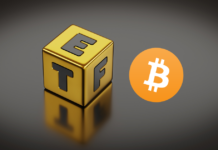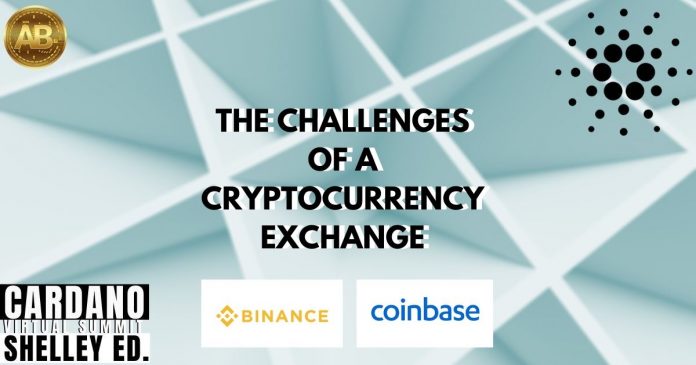Exchanges are an integral part of our cryptocurrency journey. However our main focus remains on Blockchain projects and we often forget that the cryptocurrency exchanges are playing a very important role in various aspects of adoption, particularly on compliance and regulations.
The Cardano Shelley Summit 2020 saw some eminent panelists from two popular cryptocurrency exchanges Coinbase and Binance speaking about current and future challenges. The panelists included.
Zeeshan Feroz, CEO (UK) at Coinbase
Josh Goodbody, Director for Growth & Institutional Business at Binance
What are the key regulatory challenges for a cryptocurrency exchange?
Josh: There are several challenges. At a very high level, there is a complete absence of a globally harmonized standard on how crypto exchanges should operate. When you look at that at a regional level, there are divergent regulatory approaches. Navigating all of these components is a difficult challenge.
Zeeshan: I think that is the fundamental challenge. To add to that, there are attempts to bring some sort of harmonization at a global level. But even those have challenges. It requires quite a diverse industry to come together to build something global. Even rolling that out is a challenge given how the industry is structured today. But, then, this is something that Finance 1.0 did not manage properly as well.
Josh: We are seeing voluntary associations, local lobbying groups getting into the picture nowadays. But, it is still super fragmented.
How would you like to see the KYC Process developed and amended to suit a cryptocurrency exchange?
Zeeshan: The incumbents are abandoning KYC. The ROI on KYC for someone who does not have a lot of money is not good in the case of a small organization. That is something crypto is trying to solve. The notion of KYC is to know whom we are doing business with. We agree with that. This is a part of our core principles. Similar to regulation, KYC is easy in a developed market like the US than in markets where there is no proper infrastructure. Telecom infrastructure has a high penetration rate in developing countries. This is a less conventional KYC Model. We can tap them. Our goal is to create an open financial system. It has to be inclusive.
Josh: Our ethos is spreading the freedom of money. It comes down to how do identify our client. There might be a government database, there might be challenges to identify paper copies. The ROI is not good. We can create simple things like digital identity verification tools. Once you have done your KYC somewhere else, you can pass it over in a robust way. Utilizing that safely and securely is key.
Zeeshan: I think the idea of decentralized identity is an extraordinary shift in how we operate today. If you have a single decentralized identity, it is very powerful. It has data protection. It has a promise.
The criteria that exchanges apply when they list a token. It is a confidential process? Could you speak in outline terms, what do you go through?
Josh: We have spent a lot of time thinking about what are the key pieces of information we need to list a project. We have a framework: tokenomics, show us a copy of your code, etc. Projects can see the complete steps that we go through when they are listing. The process is super granular, very very detailed. Is the token a part of the business idea? What is it improving? Is there a sustainable business model? It takes a huge amount of time. Different exchanges have different risks of appetites. The regulated ones are the good actors in the space, they do rigorous assessments.
Zeeshan: I think there is another half of the story as well. Regulation and partner management. There are not a lot of secrets. We published publicly our asset listing framework. We are more conservative than other exchanges, regarding our due diligence. The principle is the same. These are strong legitimate projects. Our role is not to be the kingmaker. We are responsible to bring to the customers’ assets which meet a certain standard. Then you also have the fiat partners, who assess assets on their regulatory framework. It is quite a hands-on exercise.
Josh: Transparency of projects are increasing in the last few years. They will go to a third party who will review their underlying business. They can provide these third-party reports. There is an ecosystem that now provides audit services and these reports can be taken to the exchanges.
Where do you stand on Staking as a service?
Zeeshan: I think staking is promising as a better secure network. It is relatively nascent. Ethereum is transitioning. It is quite ingenious on how it creates incentive models. There is currently a future for it as an environmental alternative. When you are delegating staking to exchange, it is serving the purpose of the staking. There will always be a subset of users who do not actively want to participate in a network. It may not be just through exchanges, it might be through a dedicated staking service.
Josh: There are different segments of the client. There is some super tech-savvy. But there is a large portion of clients who are not interested in participating actively. I think it is a kind of a positive thing that exchanges are stepping up. Passing the rewards is positive. If an exchange is not passing through, then there is a problem! Obviously, at the backend, they are staking!
Zeeshan: The flipside to this is it concentrates power within an exchange when it comes to things like controversial decisions of development of protocols. Then it raises questions about the influence of the exchanges. That is a real risk. That is a challenge that needs to be solved.
Josh: It is a balancing act. Cryptocurrency exchanges need to be transparent. That is the key.
Can you talk us through some of the responsibilities and expectations that fall on exchanges?
Josh: It is a challenging balancing act. Exchanges need to be compliant. That’s a real challenge. Exchanges that are working with regulators, communities, consumers, industry groups are doing it right. Some regulators act too slowly, some act fast. The better regulators have taken their time. The more regulatory delays allow us to unlock new products in new areas. The great thing we have seen is that regulators are open to having conversations.
Zeeshan: I think the intent from both sides is doing the right thing. We need to find the right model.
What are your views on DEXs?
Zeeshan: You have us, a relatively centralized exchange in a decentralized world. The practical reality of where we are today is, DEXs have promise, but still they have to complete a journey. There are a few more steps to go before they become the core.
Josh: It is inevitable to discuss the philosophical origin of blockchain. We first need to create a bridge that works well. That’s where the centralized exchanges come in. They have a good on and off-ramp. They are easy to integrate. Binance DEX has taken time for liquidity to ramp up. The interface is not simple. The average retail user who just wants to buy a couple of crypto assets is unlikely to hold their keys. When everyone is used to use a wallet, that’s when DEX integration will become easier.
–
Previously, we covered Ouroboros, as explained by IOHK researchers. Stay tuned, we have more coverage on what happened in the Cardano Shelley Summit 2020.



























